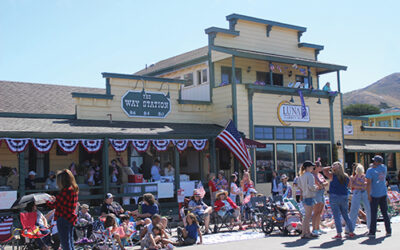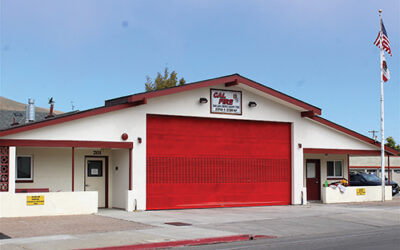After perhaps the most uncertain year in history, with the coronavirus pandemic literally affecting every business, citizen and visitor, and every City department in town, the fist indication of how the City is faring financially was recently discussed by the Harbor Advisory Board in the run-up to the Fiscal Year 2021/22 budget slated to be released next month and take effect July 1.
In his staff report, Harbor Director Eric Endersby gave the HAB members a simplified layout of his next budget.
Under “Revenues” the report lists a total of $2.15 million. Broken down that’s $1.644M from waterfront leases and licenses; $194,000 from City controlled slip fees (the Harbor Department controls both T-piers and the Beach and Dunes Streets docks, as well as the launch ramp docks and numerous offshore moorings. Also, all City slips are reserved for commercial fishing boats.); $54,000 in fees from the T-piers; $103,000 in (offshore) mooring fees; $40,000 in day use parking fees from the launch ramp parking lot; $44,000 in RV camping fees; and $70,000 to capitol projects.
On the expenses side, Endersby lists $2.05M, consisting of $1.105M in personnel costs (salaries and benefits); $61,400 in supplies; $337,500 for “services;” $135,000 in loan service; $16,000 miscellaneous; and, $399,000 in “cost allocation and other transfers.”
This last expense is paid to City Hall for services rendered, like administration, attorney services, payroll and HR, among others.
The City under State law is allowed to charge so-called “enterprise funds,” which in Morro Bay consist of the harbor, water and sewer funds, and public transportation. Enterprise funds are allowed to operate much like businesses and can have surpluses that are accumulated in reserve funds and used for future capital projects or equipment needs.
Over the past year during the coronavirus pandemic response the Governor shut down all “non-essential” businesses in California in March 2020, reportedly to help stop the spread of the virus, in a controversial move that devastated a large swath of the State’s economy — tourism.
That sent the Harbor Fund into a brief tailspin as motels and restaurants on the waterfront closed for a couple of months and have slowly reopened to takeout and outdoor dining, but remain partially closed indoors. The Council delayed rent payments to the Harbor Department for several months, too.
The City’s general fund also took a hit as motels were initially ordered closed for a couple of months, cutting off the City’s second biggest source of taxes — transient occupancy taxes — raised from a 10% tax on a room night. And when that was eased, they were limited in capacity.
The city released online its draft 2021/22 budget, which the City Council will go over in June and takes effect July 1.


